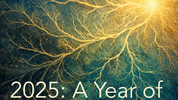A quiet reflection on conflict, perspective, and the courage to understand
If you’ve ever fallen out with someone, really fallen out, you’ll know it doesn’t usually begin with something earth-shattering. Often, it’s a comment, a disagreement, a difference of opinion. Something said or done that lands badly. But underneath that surface spark, something deeper is going on.
Because at the root of most conflict, it’s not just about what was said or done, it’s about what it meant.
We’re not just reacting to facts. We’re reacting to how we perceive them — what we believe they signal about us, our safety, our values, and our identity.
And those perceptions? They’re shaped by our unique mix of experiences, beliefs, traumas, upbringing, and the cultural “lenses” we inherited without even realising.
The Real Source of the Tension
So why do we really fall out?
Because someone else’s truth clashes with our own perception.
Because their reaction triggers an old wound in us.
Because we mistake “disagreement” for “disrespect.”
And often, because we’ve never been shown how to stay open in the heat of a difference.
We fall out when we stop trying to understand.
We fall out when being right becomes more important than being relational.
We fall out when we stop seeing the other person as a complex, evolving human and start reducing them to a label, a view, or an opponent.
And at the heart of it, there’s usually one missing ingredient:
Curiosity.
What If We Got Curious Instead of Defensive?
Imagine this:
Instead of shutting down when someone disagrees, we asked,
“When in their life, and what happened that led them to see it this way? And when in my life and what happened that shaped the way I see it?”
Instead of assuming bad intent, we paused to ask,
“What are they protecting? And what belief am I protecting? When did I begin to believe this?”
Instead of digging in our heels, we soften, not to surrender our values, but to understand the origins of their beliefs and ours.
This isn’t fluffy. It’s foundational.
True diplomacy, bridge-building, and healing don’t begin in negotiation rooms; they begin in the quality of attention we offer each other in everyday moments.
Conflict Isn’t the Enemy — It’s a Crossroads
Handled badly, conflict divides.
Handled wisely, it deepens the connection.
It all depends on whether we show up with curiosity or certainty, with fear or openness.
And yes, it takes courage to enquire within.
Especially when the topic is sensitive or the relationship has a history.
But it’s in those moments, the ones that could easily escalate that we’re offered the chance to do something truly radical:
To stay in relationship with someone we don’t yet agree with.
A Question of Consciousness
How we handle conflict depends a lot on our current level of awareness:
- When we’re in survival mode, everything feels like a threat. It’s “me versus you.”
- When we’re focused on belonging, we may protect our circle, but struggle to see beyond it.
- When we’re trying to prove ourselves, our worth can feel tied to being “right,” making us reactive or defensive.
- When we begin to ask deeper questions and explore multiple perspectives, we start to see disagreement not as a danger but as an opportunity for growth.
This blog, like much of our shared journey, is written for that fourth stage, the turning point, where awareness begins to expand.
The Moon and the Many Angles
Imagine a group of people, each from different positions/perspectives, standing in a circle, all pointing in the right direction to the moon.
Their arms are angled differently, but the intention is shared.
They are united not by uniformity, but by aspiration, even though each considers their perspective to be the right way.
This is the power of perspective. And this is the invitation.
One Quiet Question to End With
What might change in your family, your community, or even globally, if disagreement weren’t seen as a threat, but as a doorway to deeper understanding?
 unknownx500
unknownx500


